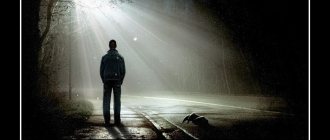Lyudmila Dika’s book “Sowing Reasonable, Good, Eternal” is a collection of plays for the school stage for children 6-12 years old. The heroes of these funny and instructive stories are both famous fairy-tale characters and new friends of the children. The scenes presented in the book cheerfully and unobtrusively teach children the basics of Christian morality, calling for kindness, peacefulness and understanding. The book will be of interest to teachers and parents, adults and children, to everyone who wants to sow reasonable, kind and eternal things in young children's hearts.
Preface
A kind and conflict-free world of relationships with neighbors is the desire of each of us.
Unfortunately, most people do not realize that such coveted communities do not arise on their own, but are created! and only through the joint efforts of all its members.
In search of a universal rule for how one should always behave, the disciples asked Confucius (551–479 BC): “Is it possible to go through a lifetime guided by only one word?” And the philosopher replied: “This word is reciprocity. Don’t do to someone what you don’t want for yourself.”
This instruction of Confucius was called the Golden Rule of Ethics.
Many famous moralists who lived before New Testament times have similar moral teachings. But only in the expression of Jesus Christ, where the negation “do not” was replaced by “do”, did the Golden Rule take on the character of positive reciprocity. The Christian commandment “So in everything that you want people to do to you, do so to them...” (Matthew 7:12), brings the formula of the Golden Rule to an ideal that practically contains all conceivable universal human norms of humane mutual relationships. In this formulation, the Golden Rule teaches us to be virtuous to everyone and in everything, just as every person is virtuous to himself!
Therefore, I am confident that the degree of success in the moral education of the younger generation depends on the ability of teachers to cultivate in children the need to follow the Christian Golden Rule in all paths of life.
And the school stage can be an excellent assistant for teachers here. It is the school theater that, through its vivid images and sincere performances by young actors, is able to clearly and captivatingly reveal to a child audience the humanism and vitality of the universal ethical law, which is the Christian golden rule.
The collection “Sowing Reasonable, Good, Eternal” contains sketches, the plots of which, based on the events and problems of everyday child life, teach children (6 – 12 years old) to compare their actions with the Golden Rule (and other New Testament commandments) and build mutually kind, conflict-free relationships with others .
The task of these essentially miniature lessons is to reveal to children the need, while walking through life, to follow those moral commandments of Christianity that teach people to love each other, love, which is the only road to the long-awaited era of mercy.
Lyudmila Petrovna Dikaya
SOW! “Sow what is reasonable, good and eternal”1. Sow the students across the heaps of earth, To tell all the sorrow of the heart Everywhere the poor fellows could.
Sow, let a noble feeling grow, Let a tear wet your eyes, - Through these tears, let the free word of Rus' open your eyes.
Let everyone know that they have begun to flaunt rude morals again, The region will again be filled with rock-toothed people, To drive away enlightenment.
Let everyone know: the dungeons are as before, And the executioners have been brought in, The best forces of the country have been given over to their wild, ardent anger,
The free steppes are blown by the winds, Rus' is wide and formidable - New things will grow - seeds of bright ideas are sown everywhere.
Those who stubbornly and for a long time did not believe the Truth of free ideas, Now they will understand - they have been calculated, measured, Their sons have been kicked out.
They dispersed everyone, but did you drive everyone out by doing something mean and disgraceful? You did this to your destruction. Your memory is shameful!
1Line from N. A. Nekrasov’s poem “To the Sowers”
An illegal poem that circulated during the student unrest of the late 20th century in Moscow. Given by Gilyarovsky in the book “Moscow and Muscovites”, chapter “Students”.
Vladimir Gilyarovsky. Moscow and Muscovites. M.: Pravda, 1979, pp. 216-218:
“In 1887, when circulars were added to the student charter restricting admission to the university, when the inspectorate and the pedagogue, these university detectives, brought the students out of patience, large street demonstrations again took place, during which firearms were used, but also this went unnoticed by the general public.
Every year, students began to go out more and more often. And the police were already on alert. As soon as gatherings begin to gather near the university, they immediately stop traffic, surround all the lanes leading to Bolshaya Nikitskaya with a chain of policemen and gendarmes, and fence off Mokhovaya near Okhotny Ryad and Vozdvizhenka. Then the doors of the arena open, students begin to be dragged there from the street, and with them the public that comes across these streets.
The most striking in the last century was the student uprising, after which more than one hundred and fifty students were given up as soldiers, and those that followed, where they demanded about”, on the basis of which the government gave up the students as soldiers,
This measure, in connection with the unrest of students, caused protest from the entire intelligentsia and complete sympathy for the students among the general population. But no details and no discussions were allowed in the press: they talked about it in secret.
At that time, many illegal poems were circulating. Here is one of them:
SOW!
“Sow what is reasonable, good and eternal”1. Sow the students across the heaps of earth, To tell all the sorrow of the heart Everywhere the poor fellows could.
Sow, let a noble feeling grow, Let a tear wet your eyes, - Through these tears, let the free word of Rus' open your eyes.
Let everyone know that they have begun to flaunt rude morals again, The region will again be filled with rock-toothed people, To drive away enlightenment.
Let everyone know: the dungeons are as before, And the executioners have been brought in, The best forces of the country have been given over to their wild, ardent anger,
The free steppes are blown by the winds, Rus' is wide and formidable - New things will grow - seeds of bright ideas are sown everywhere.
Those who stubbornly and for a long time did not believe the Truth of free ideas, Now they will understand - they have been calculated, measured, Their sons have been kicked out.
They dispersed everyone, but did you drive everyone out by doing something mean and disgraceful? You did this to your destruction. Your memory is shameful!
And indeed, the students scattered among the troops in different cities of Russia were received everywhere cordially and everywhere they started talking about what they had previously been silent about. This also revolutionized the remote province.
Another poem, “Pike perch and the chief police chief,” describing the pacification of student unrest in Moscow, also did not make it into print, but was distributed in lithographic prints:
I've seen menacing moments, I'm still dizzy... The rowdy students were noisy, old Moscow was buzzing,
Crowds followed crowds... Whistles... Hurray... Whips... Howling... Troops all around... behind the Cossacks The blue formation of gendarmes trembles.
Like a street - the same pictures, People everywhere... Troops everywhere... Students hidden in the arena, Noisy like a stormy river.
And after the students they drove frightened people into the arena, Everyone who screamed did not scream, Everyone who passed along the street - Get into the arena!
But things are hot, victory is not easy for the troops... Catch it! Push! The cook is walking, dragging a pike perch under her arm...
The brave troops have boiled! Maneuver... Different... And we won! Some are flying with a saber, some with a bayonet, In the arena they famously installed a Cook with a frozen pike perch...
When the cook and the pike perch were really herded into the arena, and a new crowd of students poured out of the university onto Mokhovaya, they suddenly saw the Chief of Police himself rushing on his pair, harnessed to a government-issued, high-backed sleigh. In the crowd of students standing in the middle of the street, he had to pause and drive quietly.
- I ask you to disperse! - the general shouted, standing up in the sleigh.
In response - noise, and then from behind the sleigh an explosion of laughter turned into shouts:
- Down with autocracy!
And again laughter and screams:
- Down with autocracy!.. Down with!..
The enraged police chief jumps up through the gates of the arena and stumbles upon the cook with the pike perch, who grabs him by the sleeve and screams:
- Your Honor, let me out! The fish will go rotten.
And pokes him with a thawed pike perch.
And at the entrance, to the laughter of the crowd, the policemen tear off from the back of the police chief’s sleigh a wide strip of paper with a bright inscription: “Down with autocracy!..”
During the stop, the students managed to paste on the sleigh one of the posters created by the artists at Lyapinka for posting around the city:
“Down with autocracy!”
This slogan, which later became formidable, was still a novelty at that time.”
_________
1Line from N. A. Nekrasov’s poem “To the Sowers”
Return “reasonable, good, eternal” to the national school!
Repetition is the mother of learning. It’s not the trouble that came into the yard, but the trouble that doesn’t come from the yard.
If for some reason people do not seem to notice or do not attach due importance to something vitally important, repeating this important thing is not only excusable, but necessary and worthy.
School education of an independent power is intended to lay the foundations of a full-fledged personality , that is, a person who has established himself in his native word, is intelligently thinking, spiritually and morally stable, aesthetically educated, historically correctly oriented, patriotically convinced, physically healthy, developed and striving for life's creation and creativity. Such education should provide school graduates with the opportunity to develop normally, successfully realize their human rights and find their creative place in life. For a full-fledged education, information due to pragmatic needs is not enough. Its goal is to form the foundations of a correct worldview; This requires a stock of knowledge that provides a certain completeness of ideas, the foundations of spiritual and mental maturity. All this goes beyond the limits of elementary literacy and pragmatically necessary information and forms the beginnings of a worldview, i.e. a holistic image of the world and a system of strategic relations to it. Worldview is based on fundamental ideas about man and the reality around him, material and spiritual, and is expressed in the awareness of the unity of man and the world and man’s place in it. This makes it possible to have correct orientation in the world and prepares for the maturity of judgment based on the desire for Truth. And all this can be achieved only by inheriting the fruitful experience of many generations, only by relying on culture , with a certain “instructiveness” of educational information and involvement in eternal national values. The changes that are mistakenly called “reforms” brought to the school, first of all, innovations, that is, innovations without traditions. They have been declared a leading factor in the development of education; “ continuous renewal of education ” was introduced everywhere from above . This “update” was essentially not scientifically controlled, although it caused negative reviews from teachers and famous scientists. However, school education is conservative in its essence: it must lay in any area - fundamental, fundamental knowledge on which one can rely in comprehending new things; it is designed to establish in the student’s the most general , organic patterns and teach him to think in the language of the subject.
The history of education confirms that the school achieved its greatest success during periods of stable existence, when it was firmly based on previous fruitful cultural traditions.
Thus, in their direction, the reforms could and did have generally destructive consequences : the school is still in a fever from innovations, “organizations”; teachers groan under the yoke of clerical reporting, essentially anti-scientific “methodological” innovations, like the Unified State Exam, and strange pseudo-experiments imposed “from above”, and all this catastrophically reduces the time required for their main professional activities, including rooting in the minds of students the basic truths of the worldview experienced experience of mankind.
In this situation, there are no conditions for normal educational work of the school. The creative efforts of teachers are wasted on overcoming harmful “innovations” that in one way or another contradict the scientific and scientific-methodological principles of education .
The successes of individual teams are achieved essentially in spite of reformist innovations. It is correctly said about the modern innovative school in the wonderful novel by V. G. Rasputin “Ivan’s Daughter, Ivan’s Mother”: “... New sciences were brought into the school like new furniture, textbooks appeared with frank pictures and calls like “Break the light bulbs in the entrances, people they will thank you..." "...New ones were added to last year's innovations, seven or eight lessons every day, and an hour a week in the Russian language, an hour a week in Russian history, the second hour was devoted to journalism. There are three programs around the neck - all-Russian, local and especially our own, school, with a set of electives, which are increasingly occupying the main place. The school turned into an old nag, unable to pull the cart with everyone who jumped into it. And this nag will fall from powerlessness, and they will finish off, prick with their sharp pointers the multiplied “culturologists” and demand a fire-steed, whose sparks would fly from under its hooves when it rushes across the boundless peaceful fields.”[1]. These changes are associated with another innovation : focus on standards that define a minimum of knowledge; but in fact - targeting him. Focusing on a minimum of knowledge gives in practice - a minimum minus the costs of teaching . This is how the content level of education is objectively reduced. A significant part of the standards were compiled without due consideration of the significance of the subject and the amount of school knowledge necessary for personal orientation in the world. The standards for a number of disciplines lack or insufficiently represent fundamental concepts , without which a full perception of the discipline is impossible or very difficult. Even in the National Doctrine of Education, a document that should define the educational strategy, there are no concepts of God, people, Motherland... But without them (as well as without a number of other fundamental concepts), the concept of service is impossible, and, consequently, the most pressing task of education disappears.
To imagine the extent of the destructive “restructuring” of program content, I will give just one example. In the twentieth century, during the heyday of the Soviet school , students compulsorily (not counting tested extracurricular reading) studied 30 fables by I. A. Krylov from 2nd to 8th grade. One of the “stage” standards offered only 4 (optional!). A similar reduction (to one degree or another) also applies to other classics, whose works alone can be used to teach the native word and Russian literature.
I would like to note that the first ones to be “banished” from the programs were works in which the national ideal, the Russian spirit, was clearly felt. Thus, from one “stage” edition of the Standard for Literature were thrown out - “The Tale of Bygone Years”, “The Life of Boris and Gleb”, “The Teachings of Vladimir Monomakh”, “The Tale of Peter and Fevronia of Murom”, 17 fables by Krylov, ballads by V. A Zhukovsky, 13 poems and two poems by A. S. Pushkin, 14 poems by M. Yu. Lermontov, “The Little Humpbacked Horse” by P. P. Ershov, “The Scarlet Flower” by S. T. Aksakov, “The Thunderstorm” and other plays by A N. Ostrovsky (1 was left!), 10 poems and two poems by N. A. Nekrasov (4 poems and 1 poem of choice were left), etc. The reduction in the works of Russian classics required for study in school has long gone beyond the minimum, beyond where ignorance and profanity begin. The standards in the subjects “Russian language” and “literature” for mass secondary schools, due to their organized inferiority, are unsuitable for orientation in training aimed at a full-fledged secondary education. The study of humanities has recently been subjected to yet another anti-scientific sabotage: our schoolchildren are being deprived of the opportunity to acquire historical thinking. The so-called “conCon Any work snatched from its historical environment also loses its aesthetic value, like an artist’s stroke cut out of a painting with a knife,” wrote academician. D. S. Likhachev. “You need to know the era, the biography of the writer, the art of his time, the laws of the historical and literary process...”
Needless to say, the studied “scraps” of literature outside of history are perceived falsely, or cannot be comprehended competently at all. All this is undoubtedly the fault of the so-called reformers. This question remains open today.
The weakening of the humanitarian field of knowledge and, above all, the study of the native word is undoubtedly a blow to the entire education system. For only through the word do we master the spiritual and practical experience of life, knowledge of earthly and Divine truth, information unfolded in time from a moment to Eternity. Today, a significant part of graduates of mass secondary schools no longer speak the Russian literary language to the extent that would ensure their further successful development in the field of science and culture ... At the same time, we cannot but be pleased with the successes of individual schools, including Orthodox gymnasiums and lyceums, but this is not about them...
The situation with the study of Russian history is no less dramatic. Only through the efforts of enthusiastic teachers in individual schools is it taught satisfactorily. From one of the next “stage” standards (when it was shortened), for example, the following sections were thrown out: “The Church in the Russian State”, “Pugachev’s Uprising”, “Foreign Campaign of 1813-1814”, “Populism” and much more.
In order to somehow understand what educational impulses schoolchildren are deprived of with such a barbaric, blasphemous and tendentious attitude towards history, let me remind you of at least one historical episode. Foreign campaign 1813-1814. was not just “persecution of the invader”, it was an act of historical and religious nature in its essence. It is no coincidence that in 1806 the Holy Synod of the Orthodox All-Russian Church declared that “the frantic enemy of peace and silence Napoleon Bonaparte abandoned the Christian faith, arbitrarily usurped the royal power of France,” and persecuted the church. He restored the Jewish Sanhedrin, “which once dared to condemn the Lord Jesus Christ to crucifixion, gathered a world Jewish council in Paris” and “having abandoned thoughts of God’s justice... dreams... of stealing (which is terrible for every person to think about!) the sacred name of the Messiah...”
The completion of the campaign was historically significant and symbolic. On 03/29/04/11/1814, Emperor Alexander I stood on the Place de la Concorde in front of the marching altar. “The Orthodox altar was installed on the spot where Louis XVI was executed in 1792 and where a red five-pointed star,” the symbol of Freemasonry, blazed on the day of Napoleon’s coronation. Battalions of the Orthodox army stood in the square, and the regimental priests proclaimed “Christ is Risen,” to which a chorus of thousands of warriors answered: “Truly He is Risen!”
Under the guise of “reforms,” the destruction of education continues from above and, at the same time, resistance to this destruction continues from below with the support of decently educated and honest teachers and a small part of officials guided by the interests of the state.
The steps taken by the new minister to correct some of the destructive actions brought by the reforms are insignificant and, in general, change little in the situation of the school. It is necessary (with some ideological adjustments) to return to scientifically proven system of school education . This was the foundation of the Soviet school during its heyday.
The destruction, officially called “reforms,” occurred through:
1) minimization and standardization of knowledge;
2) destruction of their consistency and scientific motivation;
3) narrowing and primitivization of the goals of education, malicious narrowing of its educational and educational role.
4) introducing into national education tasks that are not related to its organic goals, with the true interests of an independent country, but determined by the tasks of “globalizers” [2].
This entailed the destruction of the education system of a significant part of young people, which is happening:
1) due to the deliberate belittlement of the national spiritual potential of indigenous Russian culture and enlightenment, as well as underestimation or systematic distortion of their true nature, content and meaning. Finally, the replacement of traditional cultural values with fake mass culture creations, through its global imposition stimulated from abroad.
2) through various kinds of systematic influences on consciousness with the aim of destroying (in the mind of a person) the hierarchy of values sanctified by the spiritual experience of generations;
3) through the active work of the “fifth column” among educational leaders to denationalize culture, i.e., its destruction, because a people can either have their own culture or none, because someone else’s culture does not belong to them.
The decline in education and culture on the eve of “ coming era of struggle and competition between healthy consciousnesses and producers of systemic knowledge ” is, of course, a purely negative phenomenon, because state interests require just the opposite: the development of education and its elevation above the level achieved in the twentieth century. But state interests are opposed by well-organized actions of the “fifth column” in the management of education.
The roots of this confrontation are known. Suffice it to recall the post-war doctrine of A. Dulles, in which it was promised to destroy the self-awareness of the people of Russia, moreover, to “plant and hammer into human consciousness the cult of sex, violence, sadism and betrayal”[3]. It must be remembered that social literacy and spiritual maturity of a teenager arises when he begins to feel himself in historical time, gains experience in historical perception of the world and, above all, knowledge of the traditions of national history and culture, when he is “focused on a predominantly intensive study of his homeland” (K .D.Ushinsky). “ Spiritual maturity comes to a person with a vision of the life of his generation, as one of the links in the immortal chain of humanity. It is not so easy to illuminate a child’s consciousness with the thought that he is tomorrow’s adult, that he needs to prepare for the mission of a creator, a creator of material and spiritual values... A small reminder from a teacher should awaken a big thought in a child’s consciousness...”[4] The spiritual maturity of a creator is formed on deep knowledge national history. It is appropriate to recall the words of A.S. Pushkin: “Respect for the past is the line that separates education from savagery.”[5]
The modern school is being led away from our great national past in various ways, reducing the knowledge and awareness of our national spiritual wealth : the Russian language, Russian classical literature, true national history.
In this vile matter of spiritual genocide of the people, our enemies have achieved noticeable success, because a considerable amount of the media is in the hands of “liberals” and the agents of “Dulles’s heirs.” It happens that some central TV channels also work against culture. This is due to the fact that the State does not pursue any solid systemic creative policy in defense of national culture, often giving leadership rights in it to figures of subcultures and anticultures, supported by the destructive part of the press. Many Russian magazines are dying, including educational magazines. There is an open war against the full development of special, as well as pedagogical and methodological disciplines in pedagogical universities.
The content of school education is directly related to the formation of a young person’s consciousness. Therefore, the efforts of the destroyers were naturally aimed at reducing the basic level of literacy, at destroying the prerequisites for correct thinking, and at undermining the spiritual and moral formation of consciousness. And all this is aimed at reducing the level of fundamental content of school programs in various ways.
That’s why modern globalist schemes and techniques are being introduced into our schools, destroying modern systemic education, which is based on the enormous fruitful experience of domestic education. They try not to remember the classics of Russian pedagogy and methodology, building education on the hidden destruction of the wonderful socio-cultural pedagogical foundations and methods developed by them. Isn’t it time to turn the school back to the heritage of the classics of Russian education - N.I. Pirogov, K.D. Ushinsky, A.S. Makarenko, V.A. Sukhomlinsky and others?..
What has been said about the destruction of our school system is closely connected with the fact that the content of education through the ministry is ultimately ““corrected” by the National Research University Higher School of Economics, ROSRO, FIRO and Eureka, that is, from , which themselves are controlled from abroad”[6 ]. This is how one of the tasks of the monstrous Dulles doctrine directed against Russia is being carried out, a task for the implementation of which it was promised to throw “all the gold” in the arsenal of the destroyers. Foreign leadership receives help from other Russian “education commanders.” I will give just one example of how the domestic “leadership” contributed to global sabotage at the stage of the so-called modernization of education. In a document distributed in the press about the planned modernization , it was said about its goals: “Education should be part of the main priorities of Russian society and the state.” “ The main goal of general secondary education is the preparation of a well-rounded personality of a citizen (emphasis added by us - V.T. ) , oriented in the traditions of domestic and world culture, in the modern system of values and the needs of modern life...” Etc.
There is nothing of the kind in the final official publication of the mentioned document . At the same time, the paragraph that talked about education as a stimulator of culture and the need for it to meet the “future needs of the individual” was shortened. Paragraphs were also removed that reveal the imitation of innovations in the approach to education, the intention of “reforms” to radically change the approach to education. Paragraphs about pressing spiritual and moral requirements for education have been omitted. Finally, information about its poor financing and the need to increase spending on education from 3.5 to 4.5 GDP has been removed...
One of the significant reasons hindering resistance to destructive changes in education is the following: a significant part of those who teach and those who study have very primitive, or even false, ideas about man . It is no coincidence that the enemies of our education (and there certainly are some) prevent the introduction into school of everything that reveals the mystery of a person or helps to understand his indispensable qualities, including the course on “Orthodox Culture.” After all, education, if it is complete, should precisely contribute to the development of the properties inherent in a person.
Documents defining changes in the education system often reveal a lack of understanding of the tasks of a normal school in this regard. But only a complete understanding of a person can become the basis for creating a decent education system.
The properties that define a person, i.e., denoting qualities inherent only to him and not characteristic of any other biological being, are, as a rule, not recognized by schoolchildren. It is obvious that the presence of mental abilities or social qualities (at different levels) does not separate, but unites a person with highly developed creatures. Man is spiritual , and even those who profess the religion of atheism admit this.
Spirituality is the recognition or feeling that in addition to material, pragmatic values, there are others in the world - spiritual, more significant and significant. This is at the same time the recognition of these values as superfluous, but real, although inaccessible to definition in the categories of the material world; at the same time, this is the conviction that the organic property of a person is the “ ideal ” (I.P. Pavlov), an intrinsically valuable extra-pragmatic striving for Truth, Goodness and Beauty, for God.
Spirituality is (at the highest level) belief-knowledge about the Highest principle of life and the desire to measure and build life taking into account this principle, which makes it possible to gain, through internal, intimate contemplation and experience, a holistic idea of life, an internally felt holistic picture of the world.
The word (word thinking ) is the ability to concentrate in a word mental, sensory and spiritual experience, merged and “collapsed” into a verbal image and at the same time the environment of human existence and the spiritual environment of a person - this is another of its indispensable features. An undoubted sign of man as a spiritual being is his historical existence . “Prehistoric man” is not yet fully human. A full-fledged, normal person who has achieved the fullness of his essence is characterized by traits generated by historical time; he inherits historical traditions, is involved in historical events filled in the consciousness and memory of people with spiritual, moral, socio-political and objective-practical meaning. A person in the full sense is always a historical person, who is characterized by historically defined, characteristic features for a person; he somehow determines his place in relation to the historical movement, he lives in history and in history, one way or another having an internal relationship to the events of history, acquiring to one degree or another a correct historical picture emerging through the fog of everyday life. In essence, the right to human existence is inseparable from the right of every person to have an idea of the real history of his people and to be in one way or another organically involved in it.
Faith - as an unconditional conviction and firm consciousness and holistic acceptance of certain historically perceived worldviews about the comprehensive (mysterious) laws of Existence that determine a person’s place in the world and life behavior, oriented towards the Truth. Faith as “true knowledge, which has unprovable principles, being evidence of things that exceed the mind and the word” (St. Maxim the Confessor) - is experienced and perceived by the “depth of our soul” and is always established as “the most important thing in life” (I. Ilyin) . The so-called scientific atheism should also be considered faith .
Historically acquired faith -religion is organically connected with the traditional life orientation and existential worldview of the people. She constitutes his national spiritual heritage. An attempt on him is an attack on the spiritual life of the people, that is, on one of their basic human properties.
Culture as a stable state of consciousness , being, internal organization of behavior, creativity and the results of creativity, affirming the spiritual and human in a person and for a person, has a second feature of hierarchy : in it there are firmly defined , inherent to it, unmixed levels of assessment of the surrounding and internal world of a person: holy, good (beautiful), ordinary, vulgar, base. Finally, true culture is characterized by the organic inheritance of fruitful spiritual traditions ; She is characterized by a careful, respectful attitude towards them. At the same time, any true culture is national. The examples I have given (if you think about it) indicate that innovations in education interfere with the fruitful development of human qualities.
“Reformers,” as we know, came up with many innovations. This is “distance” education, the notorious Unified State Exam, tests, etc. and so on. All these “innovations” alienate the student from the teacher and limit the possibilities of their full communication , reducing it to one or another formality. Education in a broad sense is increasingly being replaced by training or coaching to perform certain tasks and tasks .
With a huge reduction in classroom hours at school and university, it becomes almost impossible not only creative, but also generally human communication between teacher and student: it turns into a standard dialogue, at least - the conditions created at school are pushing for this. Meanwhile normal , healthy schooling requires the living word of the teacher , various forms of teaching and educational dialogues between teacher and student , and finally, the direct influence of the teacher’s personality . Without this, the school degrades due to the “dehumanization” of communication. At the same time, the formation of the foundations of the spiritual, moral and scientific experience of students, the education of human personality traits, having acquired which a school graduate will be able to lead a full-fledged spiritual and practical life, is becoming increasingly difficult. From a temple of knowledge and a nursery of the Philokalia, the school, through the efforts of modern “innovators,” becomes, in their own words, a sphere of educational services. Naturally, a normal school can operate successfully only in spite of many conditions created “from above” and principles declared from above : education is essentially planned as inferior, for this various kinds of “prerequisites” are created.
All documents that outlined the ongoing changes in school, right down to the latest ones concerning the modernization of education and the priority directions of its development, reveal that education is ceasing to be a state matter or that it is being destroyed contrary to state interests. If we face the truth, we will have to admit that the education system as a whole is disorganized.
The content of disciplines has been catastrophically reduced (in relation to the 20th century) and continues to degrade. How was it before?..
I'll give just one example. At the final history exam in 1904 , a high school student had to answer the following questions within an hour (ticket number 11):
" Russian history . Paul I. New decrees: measures to limit landowner power, decree on censorship. Italian campaign of Suvorov. Alexander I. Napoleon's invasion, Barclay's retreat, the Battle of Borodino. Capture of Moscow, retreat of the Great Army. Congress of Vienna. Ministries. State Council. Speransky. Schools. Peasants: free cultivators.
Ancient history . Pompey. Sertorian War. Crassus, the slave revolt, Spartacus, Cicero, the conspiracy of Catiline, Julius Caesar and the first triumvirate, the fight against the Gauls. The fight between Caesar and Pompey, Caesar's victory at Pharsalus. Alexandrinian War. Dictatorship and death of Caesar. Calendar correction. Octavian and the second triumvirate. Octavius, Antony and Lepidus. The reign of Octavian Augustus. Teutoburg Forest. Average story . Byzantine education. Art: Byzantine and Romanesque styles.
New story . Louis XVIII. Constitutional Charter. July Revolution: Charles X, his overthrow, Louis Philippe. The coup of 1848-1849: Guizot, proclamation of the republic, Louis Napoleon, president of the republic .
And no one complained that children were dying from overload. What's the matter? In many ways. And above all in the system of gymnasium education, in relation to learning. Finally, there were no harmful distractions, such as television, the Internet, discos and computer games. One way or another, we still have a long way to go to catch up with the pre-revolutionary gymnasium, which others quite in vain called “the school of cramming and drilling”... If you think about the lines of the introduced innovations that are being destroyed, it is not difficult to understand: the blow is directed against the human person . The innovators essentially took the main goal of the school out of the equation — the education of a full-fledged , creatively active, spiritual and moral personality . It is impossible to name a single resolution supported by real efforts from above that would fully contribute to this. The cause is “saved” only by those selfless teachers who serve “the cause, not individuals” and think first of all about fulfilling their civic professional duty.
It’s time to finally objectively and impartially evaluate all the documents that approved rotten and absurd “innovations” and give them a sober assessment based on state strategic interests. Time doesn't wait! The enemies of decent education (and there certainly are some!) continue the vile task of implementing the Dullesian concept of information warfare against the people! Yes, exactly: enemies . What they did in many ways is not only destructive, but undoubtedly contains all the signs of a crime against the people and Russia. about the same part of the intelligentsia , which for the sake of its well-being is silent and, with its “neutral” behavior, supports destructive reforms :
May you not always be persistent
And I drank bitters on the sly,
But still there was a layer,
And now you have become a gasket.
But sooner or later, she, this part of the intelligentsia, will have to answer for everything that has been done in our education under the leadership of its enemies and pseudo-guardians!
My colleagues, thoughtful and honest teachers-workers, I address to you the last, Nekrasov, words of this article:
“Sow what is reasonable, good, eternal,
Sow! Thank you from the bottom of my heart
Russian people…
[1] V.G.Rasputin . Ivan's daughter, Ivan's mother. Tale. Stories. Irkutsk, 2004, p. 195.
[2] See: Chetverikova O.N. Destruction of the future . Who and how is destroying a sovereign entity in Russia. M. 2015.
3 Quoted according to the book: His Eminence John , Metropolitan of St. Petersburg and Ladoga . Be faithful to death (Orthodoxy and modernity) M. 1993. P.54
[4] Sukhomlinsky V.A. Man's need for man. M. 1981. P.77.
[5] Pushkin A.S. Full collection Op. - M., 1958, vol.UP. P.225,
[6] Chetverikova O.N. Destruction of the future . Who and how is destroying a sovereign entity in Russia. M. 2015. P.54.






